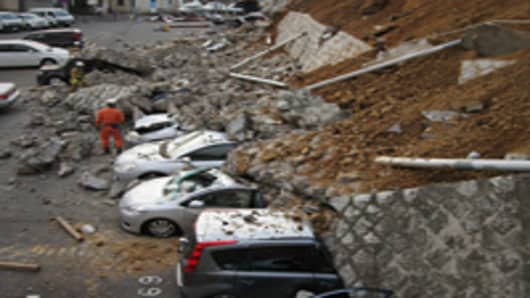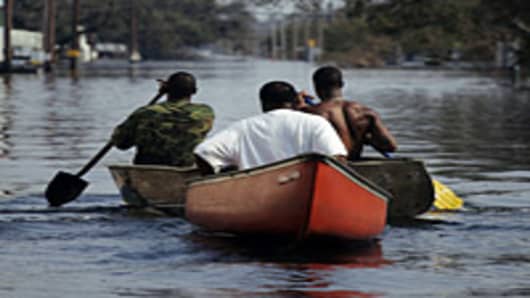
Photo: Jiji Press | AFP | Getty Images
Vehicles are crushed by a collapsed wall at a carpark in Mito city
Natural disasters, including Japan’s earthquake and tsunami, have left the industry on the hook for $60 billion in the first six months of this year alone, according to data from reinsurance giant Munich Re.
That’s nearly five times the first-half average since 2001, and the oftentimes costly hurricane season is just getting underway.
Although the damage has been worse than expected, the industry has plenty of capital set aside to weather the losses — barring the occurrence of more off-the-charts disasters, which insurers and reinsurers say may or may not be linked to global warming.
“Many companies that write large catastrophe risks, primarily reinsurance companies, are getting paid money in many years when nothing happens,” says Matthew Rohrmann, an insurance industry analyst with Keefe, Bruyette & Woods. “There really haven’t been that many devastating hurricanes over the past few years, for example, and reinsurers and insurers are still getting paid premiums. They may lose a lot of money in one year, but their pricing is based on many years.”
Indeed, a year after hurricanes Katrinaand Rita wiped out a whopping 25 years worth of insurance premiums back in 2005, the industry bounced back with record profits.
The big question now is to what degree might this year’s wave of extreme weather — including record-breaking floods, devastating wildfires, tornado outbreaks and scorching heat waves across the country — might increasingly become the norm as the planet warms.




